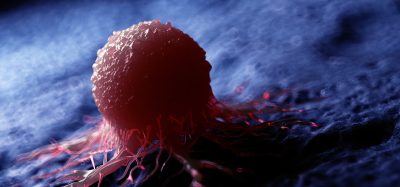Targeting Ku70 could improve bowel cancer treatment
Posted: 29 January 2024 | Drug Target Review | No comments yet
The Ku70 protein prevents cancer cells from becoming more aggressive and metastasising. It could also be used as an immune biomarker.


Scientists from The Australian National University (ANU) have discovered that manipulating the Ku70 protein, which is found in the immune system, can help overcome bowel cancer.
Bowel cancer is the fourth most diagnosed cancer in Australia, claiming over 100 lives each week. However, about 90 percent of cases can be successfully treated if detected early.
Dr Abhimanu Pandey, lead author of the study, said the Ku70 protein can be “turned on” by using a combination of new and existing drugs. He explained: “In its activated state, the protein acts like a surveillance system, detecting signs of damaged DNA in our cells…DNA is the genetic code of life. Damaged DNA is a sign of danger that can turn healthy cells into cancer cells.”
Biomarkers are redefining how precision therapies are discovered, validated and delivered.
This exclusive expert-led report reveals how leading teams are using biomarker science to drive faster insights, cleaner data and more targeted treatments – from discovery to diagnostics.
Inside the report:
- How leading organisations are reshaping strategy with biomarker-led approaches
- Better tools for real-time decision-making – turning complex data into faster insights
- Global standardisation and assay sensitivity – what it takes to scale across networks
Discover how biomarker science is addressing the biggest hurdles in drug discovery, translational research and precision medicine – access your free copy today
The study showed that mice and humans lacking a single allele of the DNA repair protein Ku70 had increased susceptibility to the development of intestinal cancer.
Dr Pandey continued: “Our research shows that Ku70 can ‘cool off’ cancer cells and mop up damaged DNA. The protein prevents the cancer cells from becoming more aggressive and spreading throughout the body, essentially deactivating them and keeping them in a dormant state.”
Australians between the ages of 50 and 74 receive a free bowel screening test every two years under the National Bowel Cancer Screening Program, which is an valuable measure to promote early detection and treatment. The risk of developing bowel cancer is greater in individuals aged over 50, but an increasing number of younger Australians are now being diagnosed with it.
Dr Si Ming Man said that future bowel cancer screening methods could include checking the levels of Ku70 in pre-cancerous polyps, abnormal growths of tissue found in the colon, before healthy cells turn cancerous. He further commented: “Our research shows Ku70 is a good immune biomarker, meaning it helps us predict who will fare better or worse after being diagnosed with bowel cancer.”
Dr Man concluded: “We know early detection and treatment is vital to overcoming not only bowel cancer, but potentially other cancers as well.”
This study was published in Science Advances.
Related topics
Biomarkers, Cancer research, Protein, Screening
Related conditions
Bowel cancer, Cancer Research
Related organisations
The Australian National University (ANU)
Related people
Dr Abhimanu Pandey (ANU), Dr Si Ming Man (ANU)








